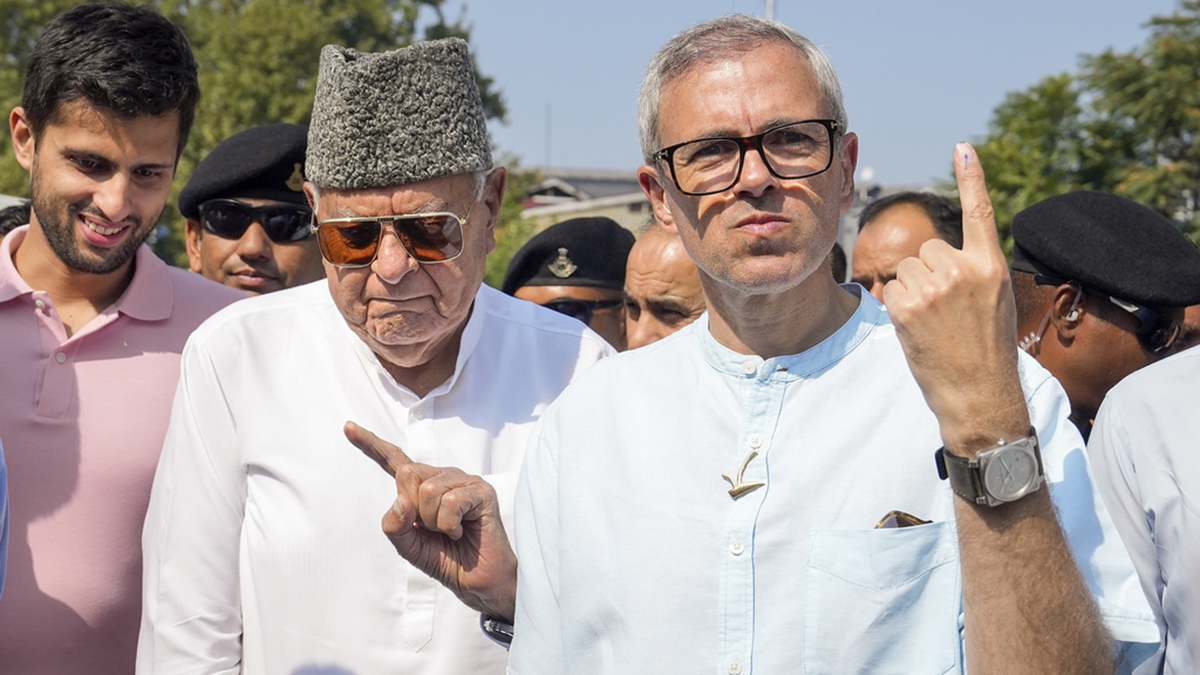) |
|
The recent assembly elections in Jammu and Kashmir have witnessed a significant shift in the political landscape, with the Congress-National Conference (NC) coalition poised to outmaneuver the Bharatiya Janata Party (BJP). This potential victory marks a resurgence for the alliance, which had lost power in 2014, and signifies a return to the political scene after a decade-long absence. While the coalition's victory seems imminent, the intricate history of the region and the evolving political dynamics pose formidable challenges for their long-term success.
The Congress-NC alliance, deeply rooted in the pre-Independence era, has a complex history marked by both cooperation and conflict. Their partnership was instrumental in Kashmir's accession to India in 1947, reflecting their shared vision of a secular and unified nation. However, the relationship was strained by political differences and events such as the dismissal and imprisonment of Sheikh Abdullah in 1953, raising concerns about autonomy and independence. The 1975 Indira-Sheikh Accord marked a turning point, reconciling the two parties and setting the stage for future alliances. Yet, the alliance has often been characterized as a marriage of convenience, driven by pragmatic considerations rather than a seamless ideological partnership. Despite their shared commitment to secularism and regional autonomy, key differences over Articles 370 and 35A, as well as the handling of terrorism, remain unresolved. These long-standing issues continue to haunt the coalition, reflecting the deeply rooted political tensions within the region.
The 1987 elections, which saw the Congress-NC alliance triumph amid allegations of rigging, had a profound impact on the political climate in Jammu and Kashmir. The perceived injustice of the election results fueled anti-India sentiment, contributing to the rise of militancy and insurgency that began in 1989. This period left a lasting impact on the political environment, shaping the trajectory of the region for years to come. The emergence of new players, such as the People’s Democratic Party (PDP), which later aligned with the BJP, further complicated the political landscape, leading to new rivalries and shifting power dynamics. By 2014, the Congress-NC alliance had lost its dominant position, paving the way for the BJP-PDP coalition. This historical context highlights the challenges faced by the Congress-NC coalition in navigating the complex political realities of Jammu and Kashmir.
The abrogation of Article 370 in 2019 has significantly transformed the political landscape of Jammu and Kashmir, further complicating the task of governing the region. The Congress and NC now face the challenge of navigating a Union Territory with altered political and legal frameworks. While this election may potentially restore some stability to the region, the question remains whether the coalition's governance will effectively address the region's deep-seated issues or continue to be an uneasy alliance, shaped by historical rifts and pragmatic decisions. The coalition's success will hinge on their ability to bridge the historical grievances and navigate the evolving political landscape, while addressing the urgent needs and aspirations of the people of Jammu and Kashmir.
Source: Hope vs history: Why NC-Congress coalition in J&K may not be a bed of roses
